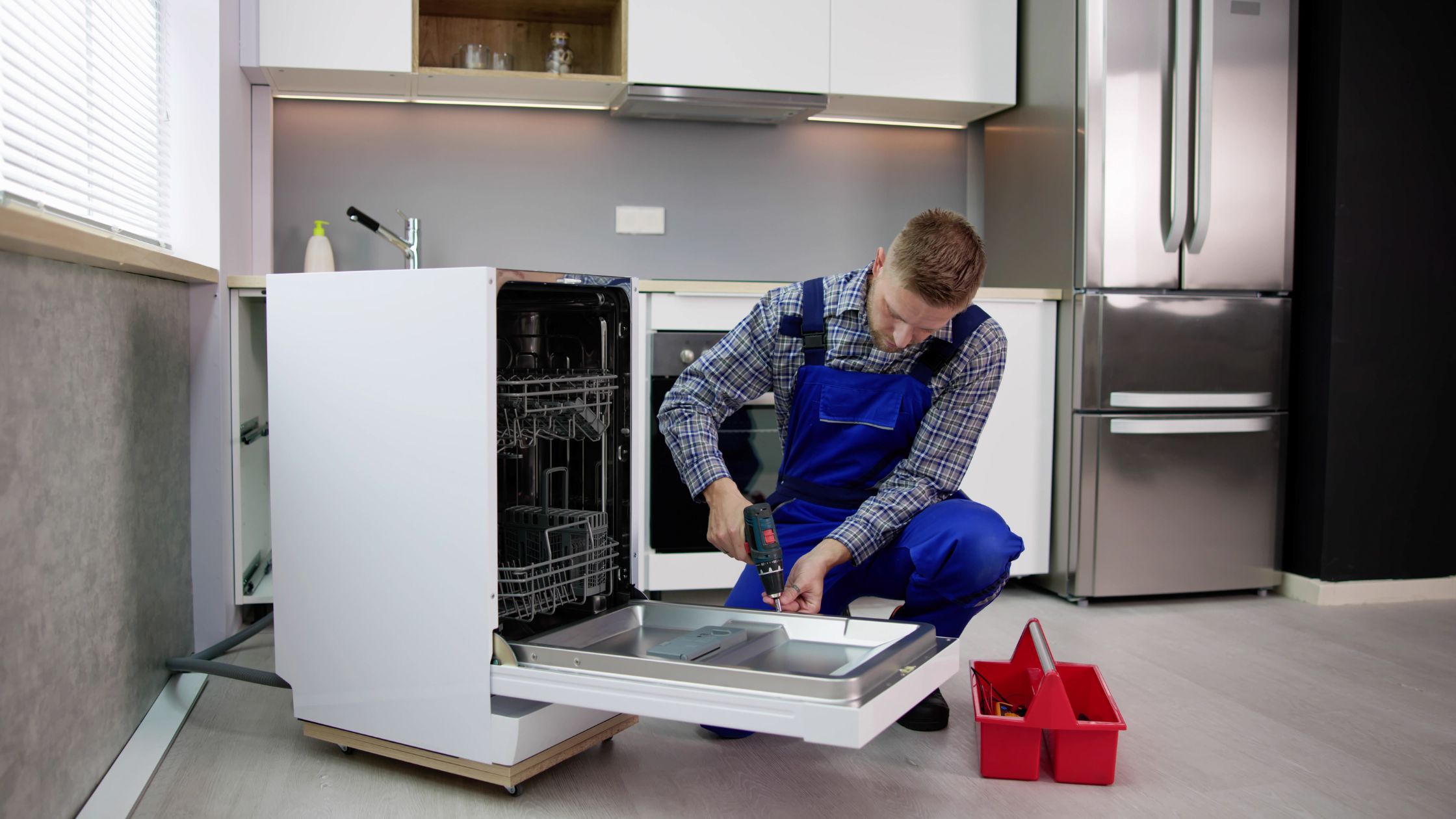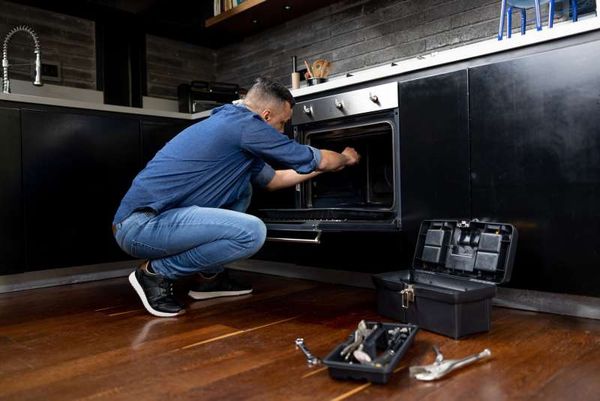What to Check When Your Fridge Isn’t Cooling – Dependable Refrigeration & Appliance Repair Service Washing Machine Repair
What to Check When Your Fridge Isn’t Cooling – Dependable Refrigeration & Appliance Repair Service Washing Machine Repair
Blog Article
A Comprehensive Consider DIY Device Repair for Homeowners
If you've ever before dealt with a malfunctioning device, you understand how frustrating it can be. Recognizing usual issues and using the ideal troubleshooting techniques can save you money and time. With the right devices and a bit of knowledge, you might take on minor repair work yourself. But when do you know it's time to hire a specialist? Let's discover the essentials of DIY home appliance repair service and what you need to keep your crowning achievement smoothly.
Comprehending Typical Device Problems
When your home appliances begin acting up, it can feel frustrating, specifically if you're unsure what the problem is. Common issues frequently occur with refrigerators, washers, and dryers, and recognizing what to try to find can save you time and stress. As an example, if your fridge isn't cooling down, inspect the temperature setups or listen for uncommon sounds that could suggest a stopping working compressor.With washing devices, leakages typically come from used hoses or defective door seals. If your clothes dryer isn't home heating, a clogged vent might be the wrongdoer.
Essential Devices for DIY Repairs
Having the right devices can make all the difference in your do it yourself device repair efforts. Start with a reputable toolset that consists of screwdrivers-- both flathead and Phillips-- since lots of devices utilize these kinds of screws. A durable set of pliers is essential for clutching, twisting, or reducing wires. You'll likewise want an outlet set for eliminating bolts and nuts that hold appliances together.A multimeter is important for inspecting electrical connections and detecting problems. Don't forget a degree to ensure your devices rest correctly, as this can influence efficiency. Consider purchasing a torque wrench for particular tightening up requirements. An excellent flashlight or work light will certainly help you see into limited or dark spaces. With these tools in hand, you'll be fully equipped to deal with most DIY appliance repairs with confidence.
Fixing Strategies for Home Appliances
Before diving into repair work, it is important to identify the trouble impacting your appliance. Beginning by observing any kind of uncommon noises, leakages, or error codes. Remember of when the problem occurs-- does it take place throughout certain cycles or under specific conditions? This can offer clues.Next, speak with the user handbook for troubleshooting pointers. Several home appliances include a troubleshooting area that may address your issue straight. On the internet resources, discussion forums, and video clips can also offer useful insights.If you can, execute straightforward tests: for a cleaning machine, check if the door lock is engaging appropriately; for a refrigerator, see if it's preserving the best temperature.Lastly, don't forget to inspect power resources-- ensure your appliance is connected in and that circuit breakers are functioning. By methodically tightening down the trouble, you'll be much better outfitted to deal with the repair properly.
Step-by-Step Repair Work Guides for Major Devices
While you could feel daunted by the concept of fixing significant home appliances, following a clear detailed overview can make the process convenient. Start by determining the issue-- this can be anything from a refrigerator not cooling down to a cleaning device not rotating. As soon as you have actually pinpointed the issue, gather the essential tools like screwdrivers, pliers, and a multimeter.Next, consult your appliance's manual for specific directions and layouts. This source can be vital for understanding exactly how to dismantle and reassemble your appliance securely. Start the repair work by disconnecting the unit and removing any type of panels or covers. Thoroughly check parts, changing any kind of faulty parts as needed.After you've finished the repair service, rebuild the device and examination it to verify every little thing jobs appropriately. Maintain a record of your repairs for future reference. With practice, you'll acquire confidence in tackling a lot more intricate concerns.
Safety And Security Tips for Home Appliance Repair Work
Prior to you begin any type of home appliance repair, see to it you're equipped with the best personal protective tools like handwear covers and safety and security goggles. Always unplug the device or shut off the power resource to prevent any type of crashes. Staying secure is equally as vital as finishing the fixing itself.
Personal Protective Devices
When dealing with home appliance repair, it is vital to prioritize your safety and security by using the right individual safety equipment (PPE) Start with safety goggles to shield your eyes from particles and prospective splashes. Next off, use gloves to secure your hands from sharp edges and hazardous products. Depending on the appliance, you could additionally require a dirt mask to stay clear of inhaling dust or fumes. Tough footwear is vital, too; select closed-toe footwear to protect against injuries from heavy things. Think about using knee pads if you'll be working on the flooring for prolonged periods. By furnishing yourself with appropriate PPE, you'll minimize dangers and concentrate on the task handy, making sure a more secure and much more reliable repair work procedure.

Power Resource Precautions
Ensuring that a device is detached from its source of power is necessary for your safety and security during fixings (Dryer repair Oro Valley Dependable Refrigeration & Appliance Repair Service). Before you begin, disconnect the appliance or shut off the circuit breaker. This easy step avoids electrical shocks or mishaps. Always verify that the power is off making use of a voltage tester-- don't count on assumptions! If you're functioning with bigger devices, think about making use of a lockout/tagout system to stop unexpected resurgence. Maintain your workspace dry and clear of mess to minimize threats. Use insulated handwear covers and use tools with rubber holds to give added security. Never attempt fixings in wet conditions, as water and power do not blend. By complying with these safety measures, you'll develop a more secure environment for your DIY fixing task
When to Call a Specialist

Security Issues Initially
Tackling DIY device fixings can be fulfilling, it's vital to recognize your limits and focus on security. If you experience any indicators of electric issues, like sparks or unusual scents, quit promptly and call an expert. Don't try repair work involving gas lines or intricate circuitry unless you're completely educated. Constantly unplug home appliances before working with them, and use safety gear to shield on your own from potential threats. If you're uncertain concerning a fixing or feel overwhelmed, seeking specialist help is the most effective choice. Your security is more vital than conserving a few bucks. Keep in mind, some fixings can cause significant injury or additional damage to your device otherwise handled appropriately. Depend on your reactions-- when unsure, get to out for expert support.
Complicated Repair Service Issues
When appliances malfunction beyond basic issues, it's often best to call a professional. If your fridge isn't cooling down, your washing device will not spin, or your stove won't heat, these issues can signify more complicated problems. Trying to fix these by yourself can bring about further damage or safety and security threats. You might experience electrical troubles, strange noises, or leaking fluids that need specialized understanding and devices. If you're unclear concerning the repair process or lack the needed knowledge, don't think twice to connect for specialist assistance. It can conserve you time, cash, and the aggravation of trial-and-error repairs. Trusting a qualified service technician assurances your home appliances are brought back securely and effectively, enabling you to get back to your daily routine.
Warranty Considerations
Prior to trying any kind of fixings, it is essential to examine if your device is still under guarantee. If it is, you may wish to avoid DIY repair services entirely. Making modifications or opening up the home appliance might void the service warranty, leaving you in charge of future repair services. Instead, get to out to the supplier or licensed service facility for professional aid. They usually have educated professionals that can detect and settle problems promptly. If your home appliance runs out guarantee and you feel great in your skills, you can wage DIY fixings. If you're unclear or face complicated concerns, calling an expert is usually the much safer choice. Remember, purchasing specialist aid can conserve you time and avoid additional damage.
Preserving Your Home Appliances for Durability
To assure your appliances serve you well for many years to come, routine upkeep is essential. Beginning by cleaning your home appliances frequently; dirt and particles can accumulate and prevent efficiency. For refrigerators, inspect the door seals and tidy the coils to maintain them effective. Clean your washing machine's drum and dispensers to protect against mold and odors.Don' t fail to remember to inspect hose pipes and links for leakages or wear. For dishwashing machines, run a cleansing cycle regular monthly to validate proper drain and get rid of odors.Keep an eye on any kind of uncommon sounds or performance concerns-- dealing with these website early can stop pricey repairs down the line (Lg Dryer repair near me Dependable Refrigeration & Appliance Repair Service). Lastly, describe your home appliance handbooks for specific maintenance suggestions and recommended service intervals. By adopting these practices, you'll not just prolong the life of your home appliances but also enhance their efficiency, conserving you money and time over time
Often Asked Questions
What Devices Are A Lot Of Frequently Repaired by Homeowners?
When it comes to do it yourself repair services, property owners often take on washing machines, clothes dryers, fridges, and dishwashing machines. You'll find these devices are most frequently fixed given that they often run into concerns and can be manageable with standard tools.
How Can I Find Home Appliance Repair Service Parts Quickly?
You can discover device repair work parts quickly by browsing online sellers, going to neighborhood hardware shops, or inspecting manufacturer web sites. Do not neglect to have your device design number convenient to assure you obtain the best components.
Exist Online Resources for DIY Device Repair Videos?
Yes, there are lots of on-line resources for DIY home appliance repair work videos. YouTube is an excellent beginning, along with internet sites like RepairClinic and AppliancePartsPros, which provide detailed guides to aid you fix and fix your appliances.
What Common Mistakes Should I Stay Clear Of Throughout Repair works?
Throughout repairs, prevent rushing your job, missing safety and security precautions, or ignoring to check out guidebooks. Do not assume you understand every little thing; request for help if needed. Constantly keep your workspace organized to avoid shedding devices or components.
Just How Can I Inform if a Component Deserves Repairing?
To establish if a component's worth repairing, assess its cost compared to substitute. Examine schedule, convenience of repair, and whether the home appliance's overall worth justifies the effort. If repair work cost much more, consider changing it rather.
Report this page